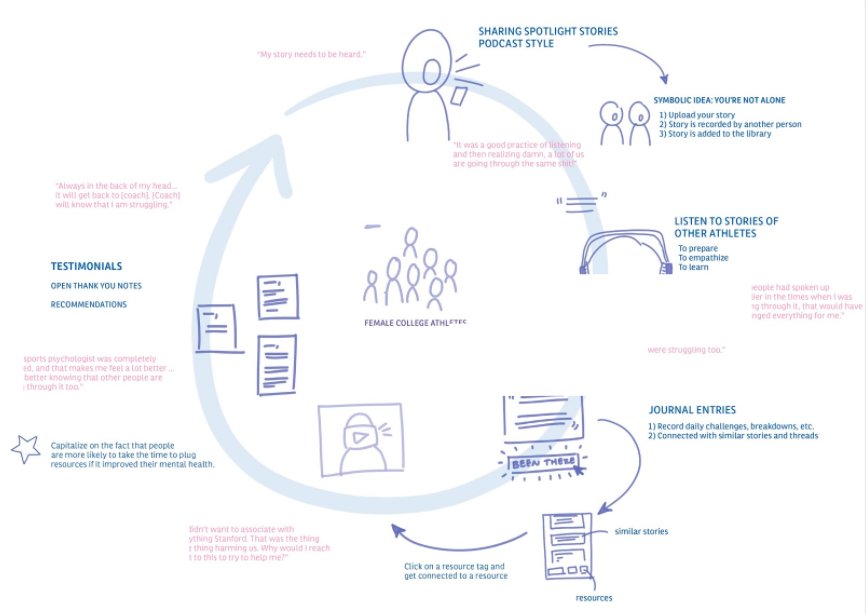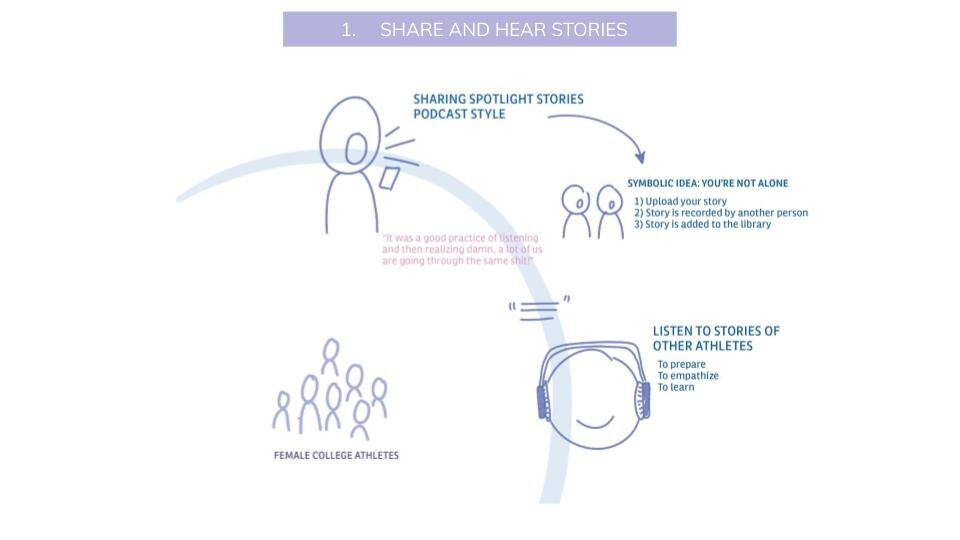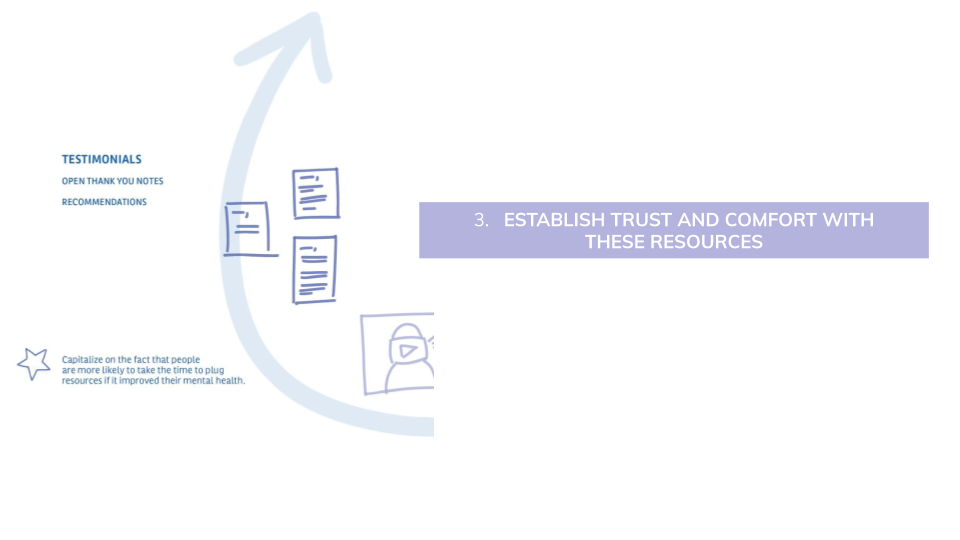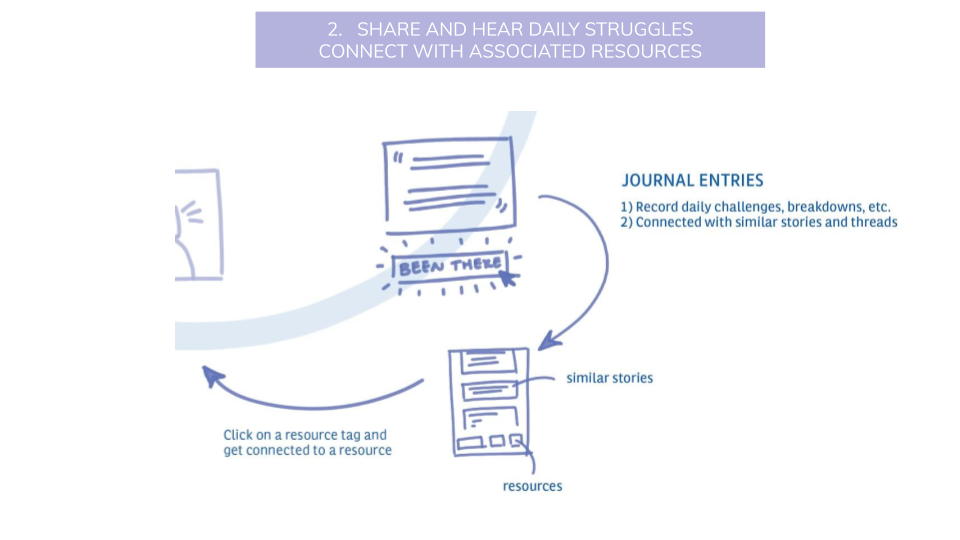
Been There
Been There is a platform focused on mental health that empowers female collegiate athletes through story-sharing.
BACKGROUND: For the class ME 216B: Advanced Product Design: Implementation with Professor Bill Burnett (Designing Your Life), Professor Brett Newman (Daylight Design), and Professor Eli Woolery (InVision).
THE CHALLENGE: According to a study from 2016, about 30% of female collegiate athletes experienced signs of depression. In 2020, mental health struggles are still extremely pervasive at the collegiate level. How might we assist female collegiate athletes with their mental health journeys?
TIME FRAME: 7 weeks
THE TEAM: Noelle Chow, Kiana Pancino, Kyra Pelton, and Mikaela Watson
Names have been anonymized due to the sensitive nature of this content.
THE INTERVIEWEES
Female collegiate athletes differed in
• College
• Sport
• Year
• Team and coach experience
We also interviewed a sports nutritionist working at a private college.
“I believe depression has been slightly normalized - and have space to be talked about, same with anxiety. I think that eating disorders just feel so weird to the person who's suffering because like, you have to eat food, and everyone does it so - just to feel like you have this poor relationship with food. It's very personal and can be awkward.”
— Ellen
“It was good [team] practice listening and realizing that like, damn, a lot of us are going through the same shit. At the same point in our lives, too. As we go through this graph, like how is it that at this age, we have all skimmed over this moment that's like, oddly similar. People need to be better about talking about it, period. That's just what it's going to come down to. But then again, you can't force anyone... but that would be nice.”
— Lin
“The sooner you have a mental breakdown, the sooner you can be built back up.”
— Mandy
THE FINDING
A SHARED TIMELINE
As interviews progressed, the athletes interviewed described a similar mental health timeline during their freshman year of college. This informed our next steps:
• Aim to combat what one athlete described as “going inward,” or emotionally and socially self-isolating due to mental health
• Intervene at the “Confrontation” stage, where the athlete begins internalizing negative reactions to her changing body, social life, performance.
THE INSIGHT
Female college athletes often struggle with their mental health in silence, causing them to miss that many other women are also going through the same struggles.
THE SOLUTION SPACE
Been There.
Empowering female collegiate athletes through story-sharing.




THE PROTOTYPE
What type of content resonates the best with our user group? How does it effect them? We found:
• Videos and quotes resonated the best
• ~5 seconds to draw people in
• “I needed a silver lining”
• “I like hearing someone I know talk”
• Biased expectations due to prototype being hosted on Instagram
FUTURE STEPS FOR PROTOTYPE 2
A New Medium
Due to the visual expectations of Instagram, prototype users may have disliked the non-immediate, non-visual forms of content, such as audio and long video, more. Prototyping using a different medium may result in different insights.
Focus In
Prototype users requested more visual content in our Prototype 1. However, they were more emotionally moved by the stories of the audio and video content. How can audio and video content be more accessible and attractive?
Path to Success
“I needed a silver lining.” The women we prototyped with wanted more than just empathy - they wanted hope. We can reassess our our design of the user’s emotional journey.

